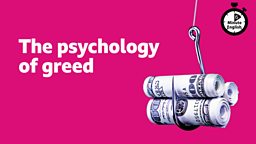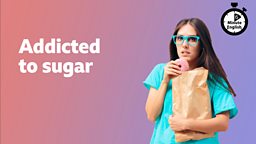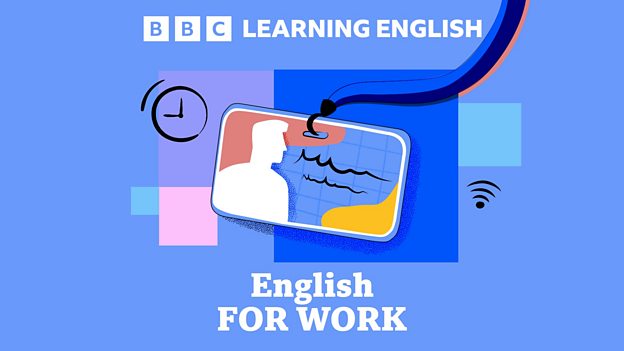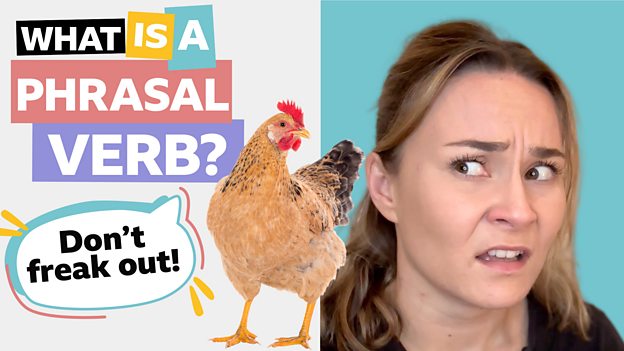6 Minute English
Intermediate level
Plastic waste eaten by enzymes
Episode 240229 / 29 Feb 2024

Introduction
Plastics can be difficult to recycle. Could a recently discovered enzyme help? Neil and Beth discuss this and teach you some useful vocabulary.
This week's question
According to the UN, around 400 million tonnes of new plastic is produced every year. Which of the following, if placed on a set of scales, would weigh about the same?
a) all the people on Earth?
b) all the cars on Earth? or,
c) all the elephants on Earth?
Listen to the programme to hear the answer.
Vocabulary
incinerate
burn
landfill
method of dealing with rubbish by burying it in large holes in the ground
brittle
easily broken, cracked, or snapped
downcycling
creating a recycled object of lesser value and quality than the original waste object
enzyme
chemicals found in living cells which cause changes in other chemicals to happen while not being changed themselves
show promise
have the potential for success in the future
TRANSCRIPT
Note: This is not a word-for-word transcript.
Neil
Hello. This is 6 Minute English from BBC Learning English. I’m Neil.
Beth
And I’m Beth.
Neil
Plastic pollution is a problem we’ve discussed before on 6 Minute English. It’s an environmental issue which, like the growing amount of plastic waste, isn’t going away. And now microparticles of plastic have even been found… can you guess where, Beth?
Beth
Hmm, let me guess – in our food? inside dead animals? at the North Pole?
Neil
At the top of Mount Everest! Although the other places you mentioned are true as well. Plastic is a tough problem to fix, but fortunately scientists may now have found a solution.
Beth
In this programme, we’ll be hearing about chemical recycling, a groundbreaking way of making old plastic new again. And, as usual, we’ll be learning some useful new vocabulary as well.
Neil
But first I have a question for you, Beth. Visit the country or seaside and you’ll soon see evidence of plastic waste. According to the UN, around 400 million tonnes of new plastic is produced every year, much of it going to waste. It’s hard to imagine what 400 million tonnes looks like, so which of the following, if you placed on a set of scales, would weigh about the same? Is it:
a) all the people on Earth?
b) all the cars on Earth? or,
c) all the elephants on Earth?
Beth
I think all the cars on Earth would weigh about 400 million tonnes.
Neil
OK, Beth. We’ll find out if that’s the right answer later. Globally less than 10 percent of all plastic gets recycled. Some gets incinerated or burnt, and about half of all plastic waste goes straight to landfill, meaning it’s buried underground. But as reporter for BBC World Service programme, ‘People Fixing The World’, William Kremer, explained, this only fixes part of the problem:
William Kremer
So, there is a mechanical process where some plastics can be sort of melted down and remoulded into a new shape or a new form, but not all plastics can go through that process at all. And also, it loses a little bit of quality every time you do that, so it will become slightly more brittle. So, it's actually more downcycling than recycling - every time it goes through that process it gets less useful.
Neil
Each time plastic is recycled it gets more brittle, meaning it’s easier to break or crack. As a result, what we call recycling is actually downcycling, creating recycled products which are less valuable and of lower quality than the original waste product.
Beth
And that’s where the new discovery fits in. Chemical recycling uses enzymes, natural chemicals which cause changes in other chemicals without being changed themselves. Certain enzymes have evolved the ability to break down plastic into its basic building blocks, and use that to make new plastic.
Neil
The problem is that very few enzymes exist which can break the chemical bonds in stronger plastics like PET, the plastic used in drinks bottles. At least, that’s what scientists used to think, until researcher, Sintawee Sulaiman, took an autumn walk in the park near her laboratory at the University of Osaka, Japan. In a pile of rotting leaves, she discovered the microorganism, ‘leaf-branch compost cutinase’, or LCC for short.
Beth
Sintawee mixed LCC with plastic and left it in her lab overnight. She was surprised to return the next morning and find the plastic gone, eaten by the enzyme! The news spread and soon scientists were predicting a major breakthrough, as William Kremer reported for BBC World Service programme, ‘People Fixing The World’:
William Kremer
This discovery wasn't the end of the story but the beginning. LCC showed promise in breaking down PET plastic, but it needed a lot more work to become stable and effective.
Beth
The LCC enzyme showed promise in breaking down even strong plastics. If something shows promise, it has the potential to be successful in the future.
Neil
Since then, that promise has started to come true. Scientists in France have used LCC to develop new enzymes and by 2025 they plan to recycle 50 thousand tonnes of plastic waste annually, including strong plastics like PET, and nylon which is used to make clothes.
Beth
But there’s still work to do. Fifty thousand tonnes sounds a lot, but not as much as the 400 million tonnes of plastic waste in your question, Neil. So, what was the correct answer?
Neil
Right, I asked you what else would weigh about 400 million tonnes, the amount of new plastic we produce each year. You guessed all the cars on Earth would weigh the same, which was… the wrong answer, I’m afraid, Beth. In fact, it was all the people on Earth! OK, let’s recap the vocabulary we've learned in this programme, starting with incinerate, another word for burn.
Beth
Landfill is a method of dealing with rubbish by burying it in large holes in the ground.
Neil
The adjective brittle means easily broken or snapped.
Beth
Downcycling is recycling but in such a way that the resulting product is less valuable or of lower quality than the original.
Neil
Enzymes are chemicals found in living cells which cause changes in other chemicals to happen while not being changed themselves.
Beth
And finally, if something shows promise, it has a lot of potential for success in the future. Once again our six minutes are up, but remember to join us again next time, here at 6 Minute English. Goodbye for now!
Neil
Bye!
Latest 6 Minute English
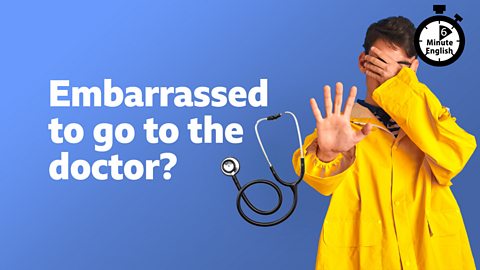
Embarrassed to go to the doctor?
Episode 241226 / 26 Dec 2024
Have you ever been embarrassed to go to the doctor?
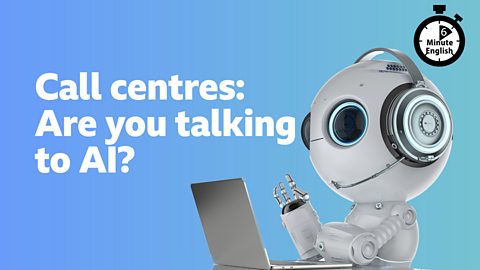
Call centres: Are you talking to AI?
Episode 241219 / 19 Dec 2024
Have you ever phoned up a company and had your call held in a queue? Could AI make this less painful?

Making 'mum friends'
Episode 241212 / 12 Dec 2024
Is making new ‘mum friends’ the positive experience it’s often described as?
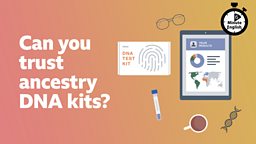
Can you trust ancestry DNA kits?
Episode 241205 / 05 Dec 2024
Are DNA ancestry tests a reliable way to trace your ancestry?
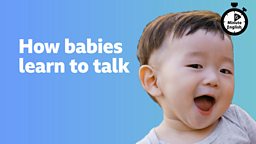
How babies learn to talk
Episode 241128 / 28 Nov 2024
What do babies need to learn to do to be able to talk?
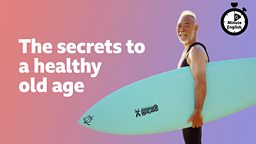

The bond between sisters
Episode 241114 / 14 Nov 2024
Are the stereotypes about older and younger sisters true?


Why you need a good night's sleep
Episode 241031 / 31 Oct 2024
Why is it so important to get a good night's sleep?

Divorce: Why does it happen?
Episode 241024 / 24 Oct 2024
How is divorce talked about in different countries?
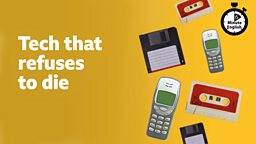
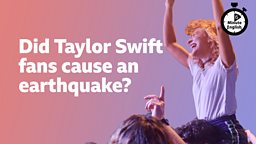
Did Taylor Swift fans cause an earthquake?
Episode 241010 / 10 Oct 2024
Did Taylor Swift move the Earth?
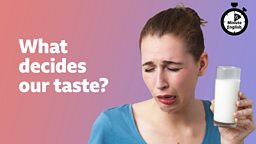
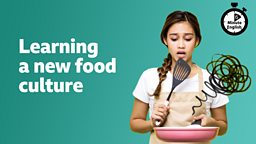
Learning a new food culture
Episode 240926 / 26 Sep 2024
Would you find it different to adapt to a new food culture?
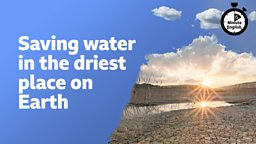
Saving water in the driest place on Earth
Episode 240919 / 19 Sep 2024
How do farmers in the driest place on Earth manage to grow crops? With this solution!
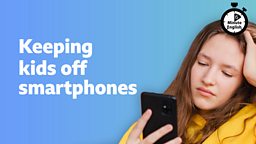
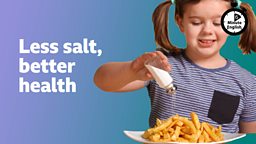
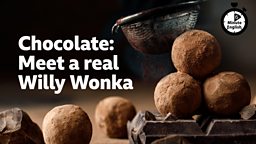
Chocolate: Meet a real Willy Wonka
Episode 240829 / 29 Aug 2024
Would you like to be a chocolate maker, like Roald Dahl's Willy Wonka?
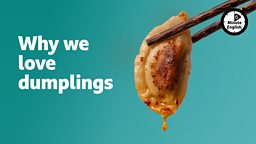
Why we love dumplings
Episode 240822 / 22 Aug 2024
Warning! This episode might make you very hungry...
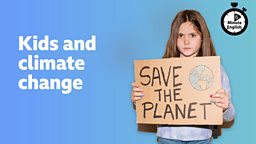
Kids and climate change
Episode 240815 / 15 Aug 2024
What are young people's thoughts on climate change?

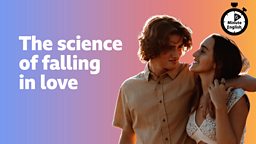
The science of falling in love
Episode 240801 / 01 Aug 2024
What's really happening in our brain when we fall in love?
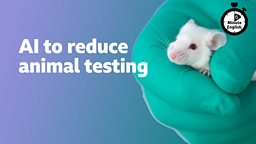
AI to reduce animal testing
Episode 240718 / 18 Jul 2024
Could AI reduce the need for animal testing?

Why read books, not screens?
Episode 240718 / 25 Jul 2024
Why is it better to read from a book than a screen?
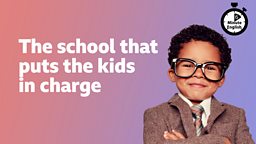
The school that puts the kids in charge
Episode 240711 / 11 Jul 2024
What happens when you put the kids in charge of the school?

What can we learn from toddlers?
Episode 240704 / 04 Jul 2024
Learn to speak to yourself in the way that toddlers do!
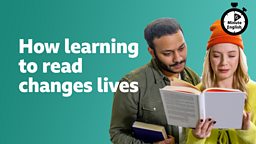
How learning to read changes lives
Episode 240627 / 27 Jun 2024
How can literacy change people's lives?
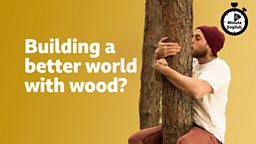
Building a better world with wood?
Episode 240620 / 20 Jun 2024
How can buildings made from wood help our mental health?
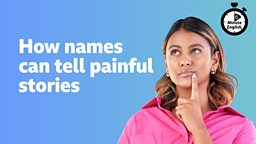
How names can tell painful stories
Episode 240613 / 13 Jun 2024
Could our name have painful baggage?
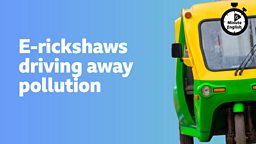
E-rickshaws driving away pollution
Episode 240606 / 06 Jun 2024
Could E-rickshaws give us cleaner air?

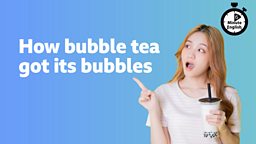

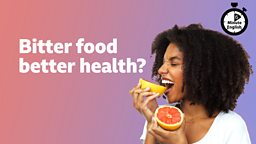
Bitter food, better health?
Episode 240509 / 09 May 2024
Could bitter foods be better for your health?
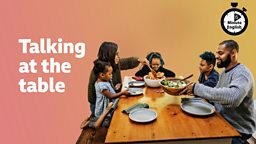
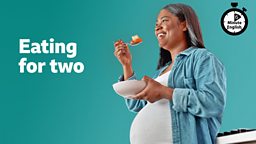





Disability in music and theatre
Episode 240321 / 21 Mar 2024
Learn about the people who are making it easier for disabled musicians and music fans to perform and see live music

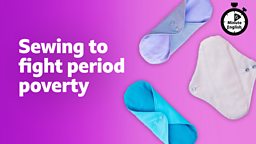
Sewing to fight period poverty
Episode 240307 / 07 Mar 2024
Period poverty affects over 500 million people worldwide. How can a volunteer project help?
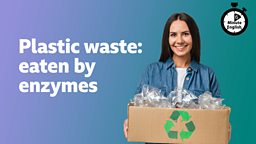
Plastic waste eaten by enzymes
Episode 240229 / 29 Feb 2024
Plastics can be difficult to recycle. Could a recently discovered enzyme help?
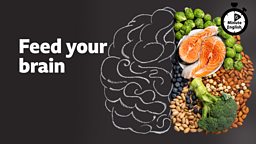
Feed your brain
Episode 240222 / 22 Feb 2024
Food is fuel for our brains. So, what should we be eating?
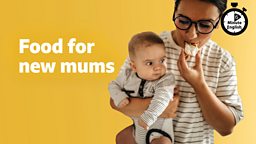
Food for new mums
Episode 240215 / 15 Feb 2024
Having a baby is exhausting! What do mothers need to eat after giving birth?
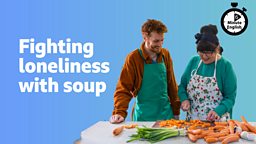
Fighting loneliness with soup
Episode 240208 / 08 Feb 2024
Hear how a project in the Netherlands is helping in the fight against loneliness

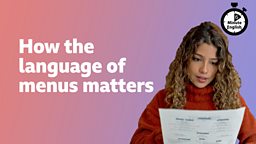
How the language of menus matters
Episode 240125 / 25 Jan 2024
Why is the language used on menus important?
